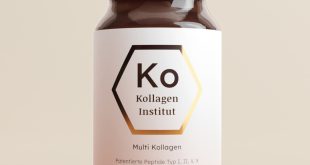Rand Youssef
About 12.2 million people in Syria need health services. The crisis in Syria left most health care facilities paralyzed. Facilities are old or were severely damaged during the crisis. Many people cannot get essential health care. Access to health care is further limited because of the cost of going to the hospital.
Families have to rent a car to get to a hospital in another city, often financially crippling for vulnerable and low-income families. During an emergency, often a person will be driven to the hospital because an ambulance will take hours and not arrive in time to save the patient.
In one of the visits to a hospital in Deir-ez-Zor where Medair was planning an intervention, the communications team met Mohammad. Mohammad had a bag of blood under his armpit. We approached him and asked him about his story.
“My son suffers from thalassemia. The medication needed for his condition is not available at the hospital, and I cannot afford it. Every twenty days we need to come to the hospital to get the blood bag. There are no heating devices available here to increase the blood temperature. I need to carry it about five hours under my armpit before I can give it to my son.”
“I wish I can find an easier solution, but everything is expensive, and it’s impossible for me to ever afford a bone marrow transplant for him, so we must come every twenty days for the blood. I’m thankful the blood at least is available” Mohammad said.
Like Mohammad, many families cannot afford medication or surgeries for their children.
Suhair works as a nurse in the incubators ward in a hospital in Deir-ez-Zor. She explained the daily struggles for the staff.
“The biggest problem we suffer from is the lack of sterilization equipment. We can only clean the incubators, but this is never enough to make them sterile. Along with that, we have a problem with the oxygenation. New-borns in the incubators always need oxygen. This all means that more deaths are always expected, not even mentioning that the hospital does not have all the medication needed. Families must buy oxygen. There is no other solution if they cannot.”
Families and health care workers struggle often unable to find or provide a solution. Families cannot afford medication, and health care workers cannot provide treatment.
Medair’s work in Syria targets hard to reach areas to rehabilitate the primary health clinics and increase access to health care. Medair has intervened in more than 30 primary health clinics between rehabilitation or re-equipment, or both in Damascus, Rural Damascus, Quneitra, Aleppo, Homs, Hama, Deir-ez-Zor and Raqqa. Along with that, Medair also intervened in three major hospitals in Syria, two in Damascus and one in Deir-ez-Zor, with coordination with the Syrian Arab Red Crescent and the Syrian Ministry of Health.
The clinics offer primary care services and have equipment and medication. Services include general medicine, paediatric and reproductive health, Community-based Management of Acute Malnutrition, and healthy Infant and young child feeding promotion, along with providing vaccinations services. Families now can access health care services in their areas.
In Syria, Medair’s work is made possible by the European Commission’s Civil Protection and Humanitarian Aid Operations, Swiss Agency of Development and Cooperation (SDC), Swiss Solidarity, SlovakAid and generous private donors like you.
This content was produced with resources gathered by Medair field and headquarters staff. The views expressed herein are those solely of Medair and should not be taken, in any way, to reflect the official opinion of any other organization.
 The Care Up
The Care Up



